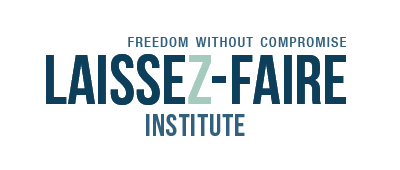“The key to the theory of liberty is the establishment of the rights of private property, for each individual’s justified sphere of free action can only be set forth if his rights of property are analyzed and established.”
Murray Rothbard, The Ethics of Liberty, 1982
To claim that property rights matter regarding questions of justice is simply to assert that the means of an action matter, that every moral agent has a right to defend their body-property and that nobody has a right to initiate force against them. A system of individualized property rights is the practical implementation of a not-so-radical notion: you can’t do good by doing wrong. Libertarians following in a Rothbardian tradition (henceforth “libertarians”) hold that they need only assert, monitor and defend the existence a single right (the natural, human right to property) in order to give practical effect to Spencer’s Law of Equal Freedom, J.S. Mill’s Harm Principle or the now commonly advanced Non-Aggression Principle. The freedom of association is an instance of that right, as are those of speech, contract and anything else one may do with property that does not violate the stronger claims of another.
Properly understood, property rights are no more than an expression of a rule of logic: non-contradiction. If you feel comfortable going up and punching someone then you can’t later complain about someone else – or eighty-thousand someones – treating you similarly. You are free to claim a right to hurt people, if you want, however you must expect to be treated in a like manner. And others are free to cooperate in order to weed out aggressors like yourself. Those who wish to cooperate reap the benefits of civil society, while those who do not remain outside the law and cannot simply appeal for its protection only when it suits their fancy while utterly rejecting it throughout the course of their day to day lives without exposing themselves to a performative contradiction. In addition to being a fundamental axiom of Ayn Rand’s Objectivist philosophy, non-contradiction is also the basis for Stephan Kinsella’s estoppel justification of individualized property rights.
Since property rights are thus a fact of logic, they are by extension a fact of nature, inescapable and absolute. This is what libertarians mean by the phrase “property rights are natural,” and that they have pre-existed their practical recognition or protection by any human institution. In the same way, two plus two has always equaled four, even thousands of years ago, whether or not any primitive tribesmen and women existing at the time could themselves have grasped the concept.
In other words, you can’t treat others like savages, i.e. violate their property rights, and then expect to have your own dignity respected in return. This is different than saying you shouldn’t treat others like savages, or you ought not violate other’s property. It’s more like saying, you shouldn’t treat others like savages, provided that you do not want to be treated like a savage yourself.
So while an individual’s right to property is indeed an absolute, all libertarians mean by that is simply this: in every possible context, it is always legitimate to defend by force the totality of your body-property (your physical body and all subjectively-independent material for which you possess a stronger, objectively verifiable link than does anyone else) from initiations of force by another. In this way then, people have an absolute, inviolable right to be secure in their personal property, with rights simply determining the way civilized human beings ought to treat each other.
The only rights are property rights because the violent enforcement of any “right” you assert which conflicts with natural property rights itself necessarily represents an initiation of force, and is thus contradictory to and in violation of the property rights of others. A pharmacist forced by state regulation to make abortifacients available for sale to her customers in order to be allowed to continue practicing her trade provides a good example. No force has been initiated until this unjust law is enforced, i.e. that the pharmacist must sell X if she wants to continue performing the rest of her otherwise peaceful and productive occupation, and its enforcement necessarily initiates force against otherwise-innocent, religious pharmacists. That is, regardless of one’s view toward abortion or the rights of the unborn, if the pharmacist continues to practice her occupation peacefully but illegally, forcing her to stop by taking her property or threatening her with violence if she doesn’t comply constitutes the initiation of force.
It should come as no surprise when such an action breeds resentment and invites retaliation. Anyone who pushes a rule like this shouldn’t be surprised when like force is used against them in the future in unforeseen ways to which they object equally as strongly. But to the libertarian, evvveryyone, alllwayyys has the right to defend themselves against these sorts of aggressions and are naturally, logically free to do so.

